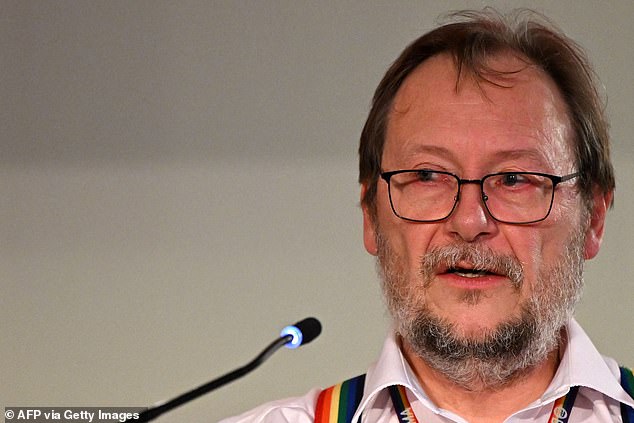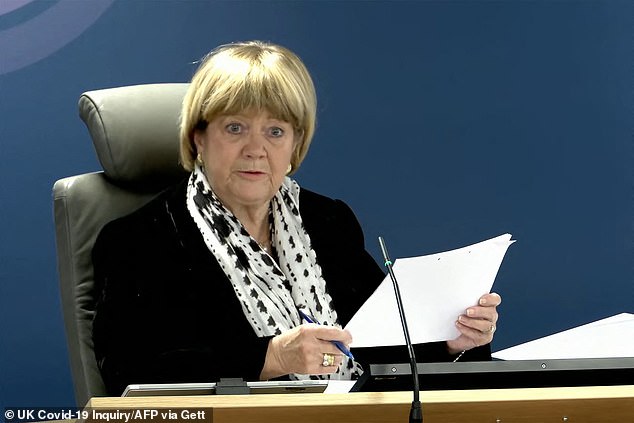Covid probe: There was ‘dereliction of duty at the top’ that left UK ‘grossly unprepared’, say medical leaders, as bereaved families claim probe ‘did not go far enough’
Today’s damning Covid inquiry report into the UK’s pandemic preparedness has revealed the “true horror” of how poorly prepared the country was, medical leaders say.
The chair of the Covid inquiry, Baroness Heather Hallett, today launched her first report into the government’s response to the pandemic, examining how, and whether, the nation was prepared for such an emergency.
Her damning report concluded that ministers and the government had failed to prepare the UK for an “entirely foreseeable” pandemic, leaving the human and economic toll even higher than it could have been.
At least 235,000 Britons are believed to have died from the virus since the pandemic began, with more deaths due to disruption to the NHS and the regular screening of people for health conditions such as cancer.
Families, communities and businesses were also torn apart by a series of crippling lockdowns imposed by ministers in an attempt to contain the spread of Covid.
Prime Minister Sir Keir Starmer responded to the inquiry report: ‘Today’s report confirms what many have always believed: that the UK was inadequately prepared for Covid-19 and that the process, planning and policies in all four countries failed British people.

Professor Philip Banfield, president of the British Medical Association, said: “This report shows in all its horror how appallingly unprepared governments were for the pandemic, how procedures failed us as citizens and how lives could have been saved.”
Prime Minister Sir Keir Starmer responded to the inquiry report: ‘Today’s report confirms what many have always believed: that the UK was inadequately prepared for Covid-19 and that the process, planning and policies in all four countries failed British people.
‘The safety and security of the country must always be the highest priority. This Government is determined to learn the lessons from the investigation and take better action to protect us and prepare for the impact of a future pandemic.’
Professor Philip Banfield, president of the British Medical Association, said: “This report shows in all its horror how appallingly unprepared governments were for the pandemic, how procedures failed us as citizens and how lives could have been saved.”
“We knew that when the pandemic started, our health service was already struggling and ‘overstretched’ by years of neglect and underinvestment by the Conservative government.
‘This report exposes how ministers were told time and again that we simply did not have enough staff or resources to cope with the predictable huge increase in demand for healthcare that a pandemic would bring. It shows how often governments ignored important findings.’
Professor Banfield highlighted that 13 of 14 pandemic simulation exercises conducted up to 2018 revealed that the NHS had insufficient staff and personal protective equipment to cope with the huge influx of patients.
PPE supplies were a major problem in the early stages of the pandemic, with reports of NHS staff having to source their own supplies, while parts of the system, such as social care, went without.
Professor Banfield echoed Baroness Hallett’s warnings that it is a matter of ‘when’ not ‘if’ another pandemic will occur, adding that the UK is not prepared for such an emergency.
“The BMA believes the UK remains ill-equipped, understaffed and under-prepared to deal with a future pandemic,” he said.
‘Today’s report makes clear the urgency of improving the UK’s preparedness. This is a monumental and wide-ranging task for the new Government, which Baroness Hallet specifically stresses will require significant funding.’
‘Baroness Hallet’s report says the UK government and devolved administrations and civil service have “failed their citizens”. This must not happen again. There will be more reports in this inquiry, but change must start now.’
Fellow medical union, the Hospital Consultants and Specialists Association, led by Dr Naru Narayanan, added: “This exposes the dereliction of duty by those at the top in the years leading up to the worst global health emergency in modern times.”

Baroness Heather Hallett, who chaired the Covid-19 inquiry, highlighted the serious lack of preparedness and resilience that allowed the virus to sweep through communities and overwhelm the NHS
He continued: ‘The government’s complacency has left us completely unprepared as there has been absolutely no serious planning for a pandemic like Covid.
‘The false economics of underfunding NHS services has left them in the worst possible position heading into 2020.
“Our hospital doctors, their colleagues, patients and the general public were all victims of this incompetent lack of contingency planning and were essentially left to fend for themselves when the pandemic hit.”
Dr Narayanan said the inquiry’s recommendations must be implemented “fully and without delay”, adding that “those responsible must be held to account”.
A spokesperson for the Covid-19 Bereaved Families for Justice UK group, speaking outside the inquiry, welcomed the report and its recommendations.
However, they added that they felt the investigation did not go far enough.
‘While the inquiry has exposed many of the factors that have undermined our response, Lady Hallett has not gone far enough in setting out how we can address and improve inequalities and the capacity of public services. She has merely mapped out the effects of these shortcomings.
“We are asking this government to develop a plan to address health care inequities and to conduct an interdepartmental review of pandemic preparedness in the first 100 days.
‘We also call on the government to appoint a minister for resilience and preparedness. We need someone who has ultimate responsibility for an emergency response and who we can hold to account.’
This module of the inquiry, which examined preparations for the pandemic before the arrival of Covid, was conducted over 23 days of public hearings held in central London in June and July last year.
Other modules include research into decision-making during the pandemic in the UK, the impact of Covid on UK healthcare systems, vaccines, the procurement of personal protective equipment, the healthcare sector and the impact of the pandemic on children and the economy.
The inquiry as a whole is not expected to conclude until 2026, with public hearings, and is expected to cost around £200 million.
